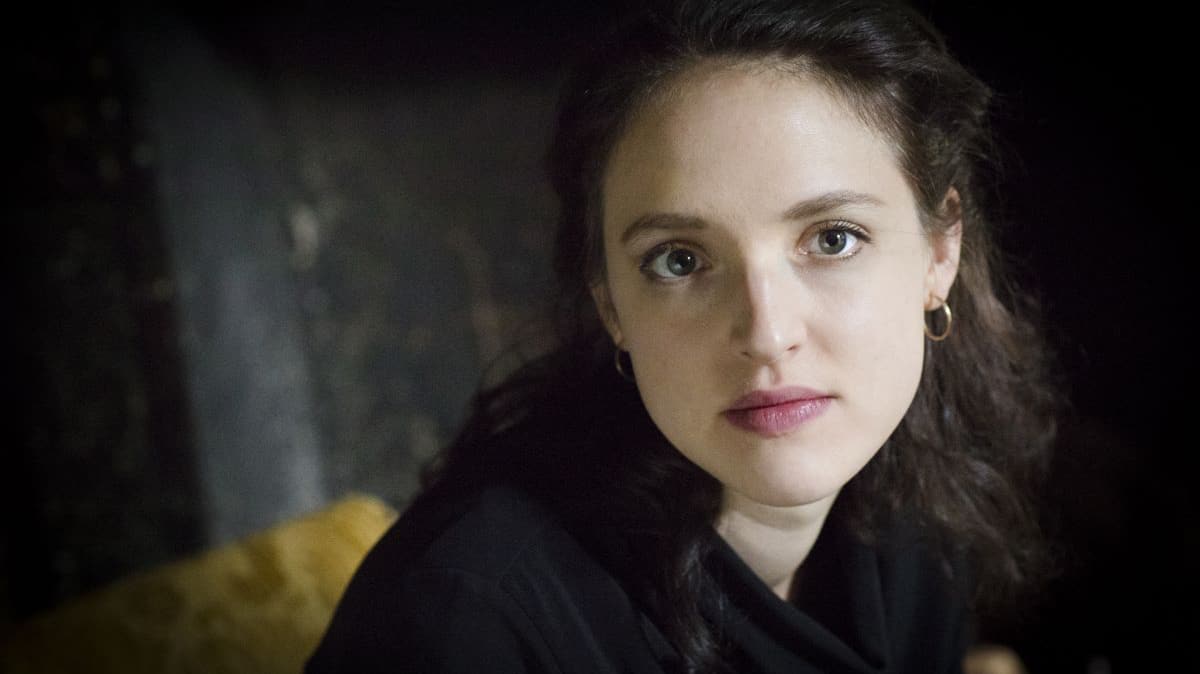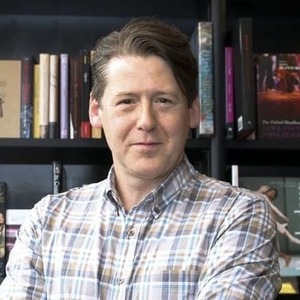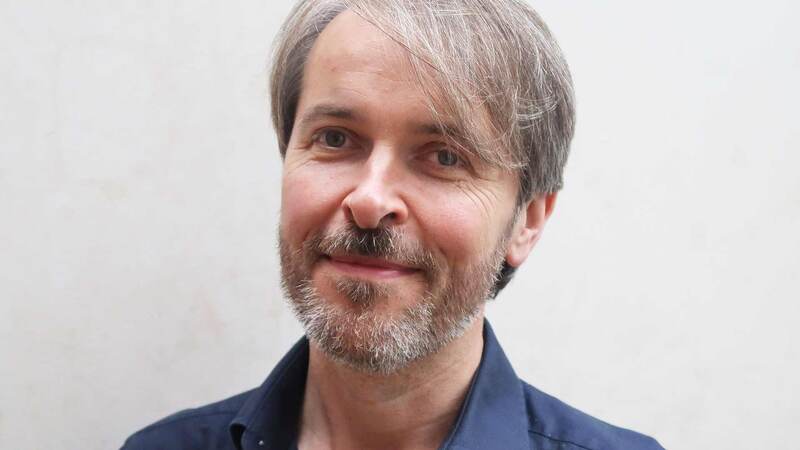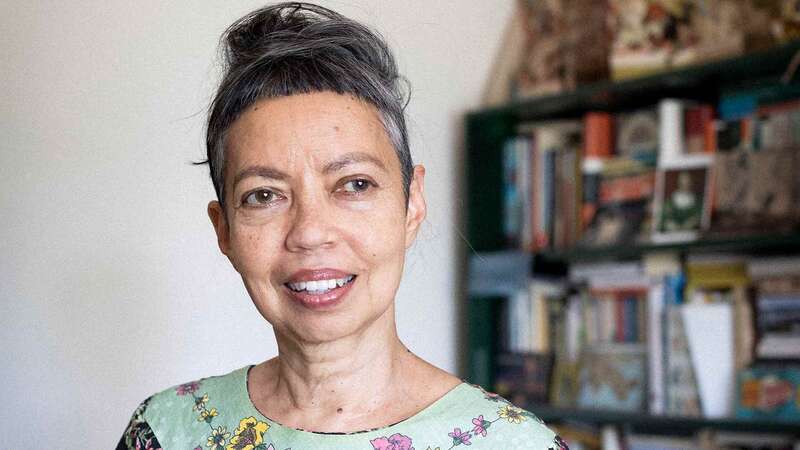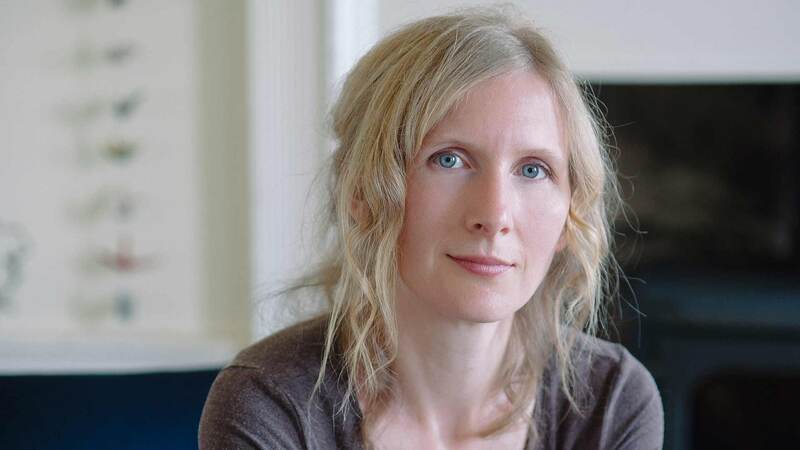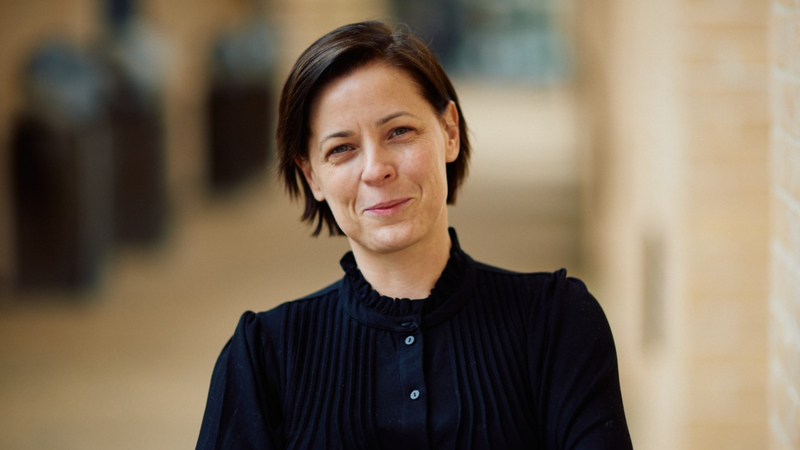You are viewing your 1 free article this month. Login to read more articles.
Isabella Hammad | 'I think it’s best to take the hype with a pinch of salt'
A sprawling first novel by Isabella Hammad, set in Palestine and Paris in the early 20th century, feels both contemporary and classic—and its roots are close to the Londoner’s home.
There is a fair bit of heft to Isabella Hammad’s début novel, and I mean literally. The Parisian (Cape) clocks in at nearly 600 pages, not including the lengthy cast of characters it opens with, and a long endnote on the Syrian and Palestinian national movements from between the World Wars at its close.
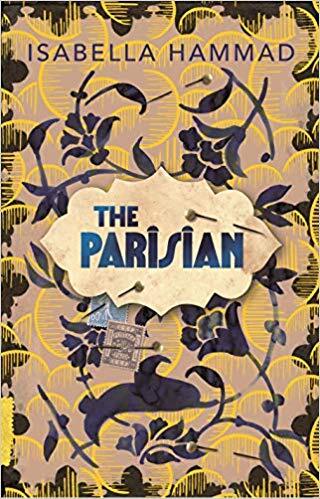 With its bulk and its pacing, The Parisian seems more a 19th century book than a 21st century one, closer to George Eliot and Thackeray than, say, Zadie Smith, whose effusive blurb is emblazoned on the back cover. This is anything but a drawback. The Parisian is epic in scope, with the action taking place in France and the Middle East over a couple of decades starting from 1914, with its characters caught up huge historic events, from the First World War to the fraught, shifting and dangerous geopolitics of the British Mandate of Palestine in the 1920s and ’30s. Yet, at its heart, it is a domestic drama; the real battles often take place in French drawing rooms and West Bank apartments. Hammad delicately balances these two seemingly contrasting strands, and it is the restrained, considered pace that is the book’s strength.
With its bulk and its pacing, The Parisian seems more a 19th century book than a 21st century one, closer to George Eliot and Thackeray than, say, Zadie Smith, whose effusive blurb is emblazoned on the back cover. This is anything but a drawback. The Parisian is epic in scope, with the action taking place in France and the Middle East over a couple of decades starting from 1914, with its characters caught up huge historic events, from the First World War to the fraught, shifting and dangerous geopolitics of the British Mandate of Palestine in the 1920s and ’30s. Yet, at its heart, it is a domestic drama; the real battles often take place in French drawing rooms and West Bank apartments. Hammad delicately balances these two seemingly contrasting strands, and it is the restrained, considered pace that is the book’s strength.
So what I grew up reading is still kind of still in me. I may not have been reading 19th century books while I was writing, but there might have been some unconscious influence. Maybe I’ve written something slightly old-fashioned in the sense that it’s a great, sprawling thing with tons of characters
"I knew it had to be a long book," Hammad says over Skype from Brooklyn, where the native Londoner has lived for the past three years. "That was partly because I guess I was thinking that one thing that the novel as an art form has over other art forms is time. I think I got this from those 19th century books I read when I was younger. One of the great pleasures I used to get was sort of living in a novel for ages. And I suspect that with a first novel you are unconscious of your influences. So what I grew up reading is still kind of still in me. I may not have been reading 19th century books while I was writing, but there might have been some unconscious influence. Maybe I’ve written something slightly old-fashioned in the sense that it’s a great, sprawling thing with tons of characters."
Past and present
If the structure is a bit old-fashioned, the underlying themes of The Parisian are bang up-to-date: race, immigration and the vexed problems of the situation on the ground in the Palestinian territories. The action centres around Midhat Kamal, a young man from the city of Nablus in the West Bank. In 1914, his wealthy merchant father sends him to Montpellier in France to study medicine. We follow Midhat over the next 20 years as he lives, loves (Midhat loves a lot) and loses in France, Paris and a turbulent Middle East.
Hammad did not have to look too far for inspiration as the book is loosely based on her great-grandfather, also called Midhat. The real-life Midhat was something of a rogue and almost a legend in Hammad family lore: "When I was a child, I always heard these stories about Midhat, which tended to be pretty funny about his obsession with France, his many love affairs and kind of being a bon vivant." The book did require some research, however. Hammad particularly quizzed her grandmother about Midhat, though she wonders how reliable her grandmother was as a narrator: "She was an amazing source. She had just the most incredible memory, but the detail was so rich and precise I was always wondering if it just was a very good imagination." Hammad also traveled to Palestine to interview relatives and friends, all now elderly, who knew Midhat and who lived during the Mandate period.
There is a bit of unstated melancholy in The Parisian, in that for a good portion of the book we are with Palestinians who are struggling for national self-determination. The book ends before the Second World War begins, but readers know of the subsequent difficulties for people in the region, and how they have continued to the present day. Though her book is centred in a specific time, the inevitability, Hammad acknowledges, is that when discussing the novel she will be called on to speak about the present situation in Palestine. She says: "It is a novel about Palestine, I can’t get away from that, even though it’s centred in a specific time. I feel like I just have to talk about what’s in the book. I guess what I was trying to do by writing about these characters was reclaim some of the past, some of the dignity. The narrative of Palestinians [in the media] is largely about the Diaspora and the tragedy of displacement. What I wanted to do was write a story about Palestinians from before they became defined by the current political situation, the occupation and the state of Israel."
Homecoming
Hammad grew up in Acton, west London. Her father’s family hails from Palestine—though before he moved to London he lived in Lebanon—while her mother comes from largely Northern Irish stock. Hammad was a bookish kid and while she never yearned to be an author professionally: "I always wanted to write Midhat’s story from the time I was a teenager." She read English at Oxford and after graduation was set to decamp to Palestine for an extended stay—she had never been before. "My father hadn’t gone back for a while and we never went as a family, which I was sort of glad of, because it would have been such a momentous thing for me. I wouldn’t have wanted to just go there on a school holiday."
Yet before she left Oxford, she was encouraged to apply for a graduate literature fellowship at Harvard and was accepted, so she reluctantly postponed Palestine. She had been contemplating a life as an academic, but after Harvard she began a creative writing degree at New York University, mainly to finally write Midhat’s story.
It worked a treat, with the novel being sold late last year into 12 territories, many of which were the result of frenzied, multi-publisher auctions. Does it turn your head a bit when you are just 27 and publishers around the world are vying for your book? She says: "No, because during the whole process I was thinking that publishing is very precarious—you can be flying high and then you’ll fall. Maybe it helps that I didn’t set out to be a writer from day one. I do want people to read the book, enjoy it, get something from it. But I think it’s really important to remain humble and stay close to what you know—the point of the art form and your relationship with it—and separate yourself from all of that [publishing] stuff. So yeah, I’m very thankful, but think it’s best to take the hype with a pinch of salt."
Extract
There was one other Arab onboard the ship to Marseille. His name was Faruq al-Azmeh, and the day after leaving port in Alexandria he approached Midhat at breakfast, with a plate of toast in one hand and a string of amber prayer beads in the other. He sat, tugged at the cuffs of his shirt, and started to describe without any introduction how he was returning from
Damascus to resume his teaching post in the language department of the Sorbonne. He had left Paris at the outbreak of war but after the Miracle of the Marne was determined to return. He had grey eyes and a slightly rectangular head.
“Baris.” He sighed. “It is where my life is.”
To young Midhat Kamal, this statement was highly suggestive. In his mind a gallery of lamps directly illuminated a dance hall full of women. He looked closely at Faruq’s clothes. He wore a pale blue three-piece suit, and an indigo tie with a silver tiepin in the shape of a bird.
A cane of some dark unpainted wood leaned against the table.
“I am going to study medicine,” said Midhat. “At the University of Montpellier.”





